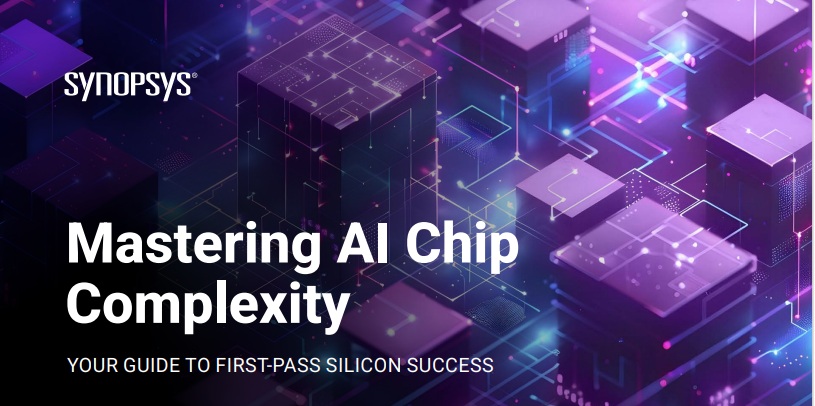The rapid evolution of artificial intelligence (AI) is transforming industries, from autonomous vehicles to data centers, demanding unprecedented computational power and efficiency. As highlighted in Synopsys’ guide, the global AI chip market is projected to reach $383 billion by 2032, growing at a 38% CAGR. This surge is driven by AI models scaling to trillions of parameters, outpacing traditional monolithic chips. To meet these demands, the industry is shifting toward chiplet-based and multi-die designs, enabling scalability, heterogeneous integration, and optimized performance. However, this transition introduces formidable challenges: silicon complexity reaching hundreds of billions of transistors, shrinking design cycles to 12 months, soaring costs exceeding hundreds of millions per chip, and acute talent shortages. At least 58% of ASICs require respins due to logic flaws, underscoring the need for a holistic approach to achieve first-pass success.
Central to mastering these complexities is early architecture exploration. Designers must address performance, power, and cost trade-offs upfront, using tools like Synopsys’ Platform Architect for monolithic and multi-die modeling. This “shift-left” methodology optimizes CPU configurations, memory hierarchies, and interconnects, such as UCIe for die-to-die links and PCIe 7.0 for high-speed interfaces. By simulating AI workloads early, teams can reduce schedule risks by 3-6 months, ensuring efficient data movement and energy use. Power optimization is paramount, as data centers could consume 1,000 TWh by 2026—equivalent to entire nations’ energy needs. Integrating real-world workloads prevents bottlenecks in memory bandwidth and thermal management.
Silicon front-end and back-end design further amplify these efforts. RTL design demands excellence to avoid costly respins, with Synopsys’ integrated flows leveraging AI-driven verification for seamless simulation across chiplets. Back-end tools like Fusion Compiler enable hyper-convergent workflows, balancing power-performance-area (PPA) while handling high-density HBM and UCIe interfaces. Cloud-based solutions, such as Synopsys Cloud and ZeBu Cloud, provide on-demand scalability, eliminating CapEx barriers for startups and managing peak demands for enterprises. This is exemplified by Rain AI, which accelerated innovation using Synopsys’ suite, focusing on power-efficient compute engines.
Advanced packaging and multi-die design break reticle limits, but introduce issues like signal integrity and system pathfinding. Synopsys’ 3DIC Compiler, in collaboration with Ansys, offers end-to-end solutions for thermal and power-aware co-design, supporting UCIe standards and foundry partnerships with TSMC and Intel. Early software development parallels hardware via virtual prototypes and hardware-assisted verification (HAV), allowing quadrillions of cycles for validation. NVIDIA’s adoption of HAPS-200 prototypes achieved 50 MHz speeds, boosting software productivity in compressed cycles.
Security considerations are non-negotiable, with AI threats like data poisoning and model theft. Synopsys provides certified IP for root-of-trust, secure interfaces, and post-quantum cryptography, safeguarding multi-die systems. Finally, Silicon Lifecycle Management (SLM) ensures long-term reliability through in-field monitoring, RAS features, and predictive analytics, as seen in AWS Trainium deployments.
Bottom line: Synopsys turns AI chip challenges into opportunities by offering comprehensive EDA tools, IP, and ecosystem collaborations. By parallelizing design tracks and emphasizing early optimization, innovators can achieve resilient, high-performance silicon. As AI reshapes the world, partnering with Synopsys ensures first-pass success, driving innovation from concept to deployment.
About Synopsys
Synopsys, Inc. (Nasdaq: SNPS) is the leader in engineering solutions from silicon to systems, enabling customers to rapidly innovate AI-powered products. We deliver industry-leading silicon design, IP, simulation and analysis solutions, and design services. We partner closely with our customers across a wide range of industries to maximize their R&D capability and productivity, powering innovation today that ignites the ingenuity of tomorrow. Learn more at www.synopsys.com.
Also Read:
Share this post via:







Comments
There are no comments yet.
You must register or log in to view/post comments.